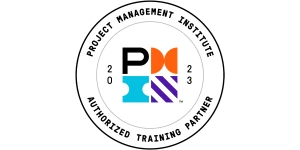The Five Kinds of Six Sigma Projects: Process Improvement
For most Six Sigma professionals, the type of projects they work on determines how far they will advance in a single career. Similar to how Six Sigma ranks certifications into Belts, projects also follow an order. In our previous article, we introduced the first project type, Quick Wins. While these type of projects easily resolve compound and isolated issues, they are not ideal for more experienced, full-time professionals. In order to truly enhance your understanding of the methodology, you will want to begin working on Process Improvement projects. As the second level in the five-tier system, these projects offer more experienced professionals the opportunity to showcase their skill sets. Additionally, these projects differ from Quick Wins and separate those who understand the need for due diligence apart from others. In today’s article, we will look at what Process Improvement projects are, who works on them, and who manages them.
Click Here to know More About DMAIC
What is ‘Process Improvement’?
Unlike Quick Wins, Process Improvement projects are relatively slow. They focus on incremental reduction of errors, defects, cost, and other variables. As a result, these projects work to improve and perfect a process over time with small, carefully thought out phases. One reason for the longevity of Process Improvement projects when comparing to others is the lack of a known cause of the error or defect. Because professionals must spend more time locating the problem’s source, these projects tend to take longer to complete. Likewise, after locating the problem, a straightforward solution is not always apparent. For this reason, professionals must use Six Sigma tools, such as DMAIC or PDCA.
Who Works on Process Improvement Projects?
Because of their more complex nature, Green and Black Belts typically carry out Process Improvement projects. The reason for this comes down to one thing: knowledge of the Six Sigma methodology. Unlike more simplistic projects, these require further analysis of all related causes to the problem. A basic Root Cause Analysis will not suffice with locating the source of the problem. Likewise, one the problem is located, a solution is then needed. For this, professionals with more experience conducting data analysis and working on additional Six Sigma projects will partake in Process Improvement projects.
Who Manages Process Improvements?
Often, Process Improvement projects are referred to as ‘DMAIC Projects’. This process method, which stands for Define, Measure, Analyze, Improve, and Control, is key to solving these more complex projects. Likewise, more experienced Six Sigma professionals will typically manage Process Improvement projects. These individuals are usually full-time Green and Black Belt certified and have years of experience working on similar projects. Almost always, these professionals guide other project team members in caring out corresponding tasks to resolve the issue at hand. Strong, effective leaders are a must for these projects. Organization, due diligence, and following strict criteria can be more difficult if management is lacking.
SixSigma.us offers both Live Virtual classes as well as Online Self-Paced training. Most option includes access to the same great Master Black Belt instructors that teach our World Class in-person sessions. Sign-up today!
Virtual Classroom Training Programs Self-Paced Online Training Programs







